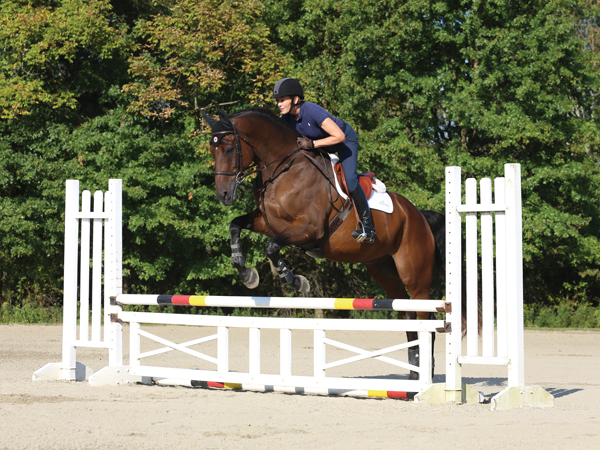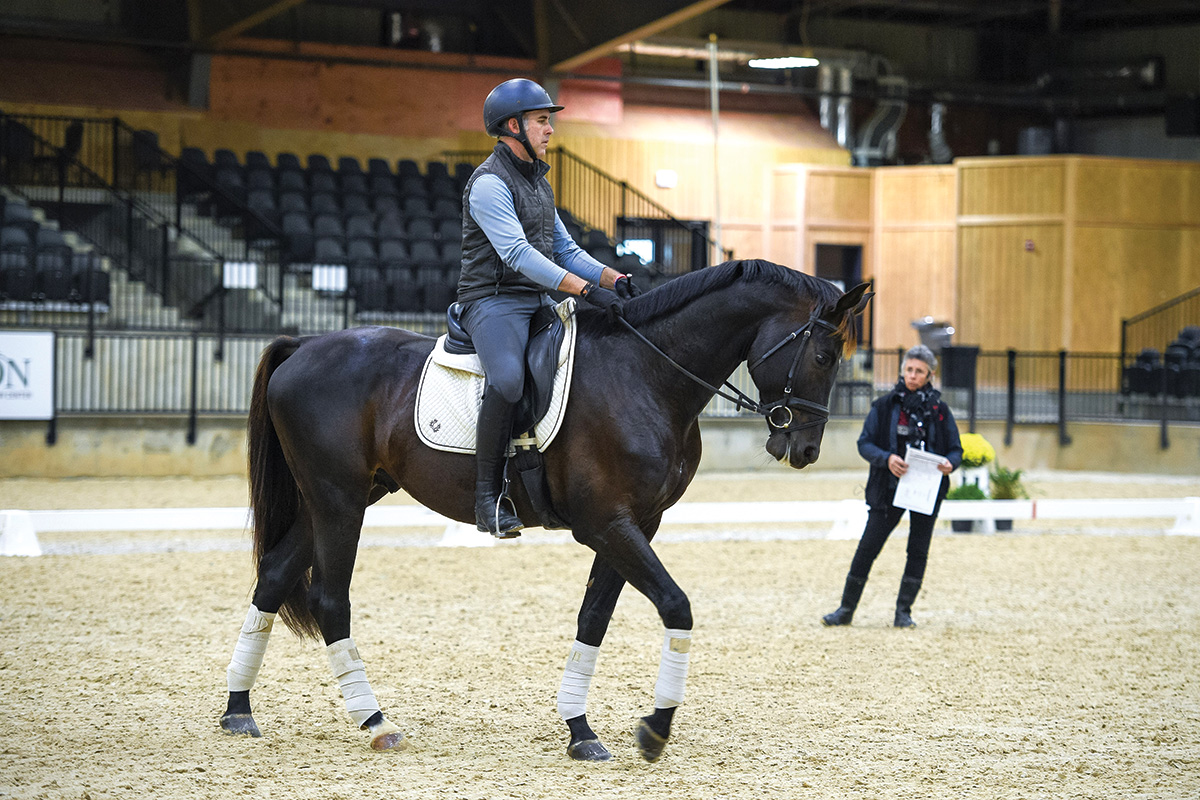
Have you noticed that your horse is flipping his head when you take up contact with the reins? Does he seem to open his mouth as a form of resistance? How about the position of his headset? Is your horse coiled up like a spring, with his chin on his chest? All of these may be symptoms that you are using the wrong English bit on your horse.
While many frustrations under saddle are associated with training issues rather than problems with the bit, issues with tack can also make your horse difficult to ride. For example, a horse that literally tries to take the bit from your hands by flipping his head or rooting forward and down with his mouth probably needs a tougher bit. Don’t go too far to the opposite extreme, however. If you’ve been using a smooth snaffle, switch to one
Finally, a horse that avoids rein contact by arching his neck and pinning his chin nearly to his chest is said to be “behind the bit.” In most instances this is caused by a combination of a feisty horse, a rider using hand aids that are too strong and a much too severe bit. By returning to a milder bit and working on simple exercises on the flat, the horse should learn to accept the bit and the rider’s hands. If you investigate alternatives in bit choices, you’ll be on your way to more successful rides under saddle.
Rumor has it the author has enough bits to start a museum.





i have been using the wrong bit for jumping and now that I chenged my bit my horse is 100% better.
Huh, when we first got my TB he came with a french link snaffle and it worked erally well but then I started jumping him a bit more and he got really strong on the back end of the fence. So my trainer said to try him in a slow twist and it had no efect whatsoever, so we switched him again to a simple pehlem. I ride him in it every day and he listens to me much better while jumping. Funny though, he flipps his head after about 45 minutes of riding time. he’ll do it at w/t/c. It seems to me that it is because he is bored with what we are doing b/c he never does it when we’re jumping, only when we are flatting. He also does it in his stall, in the cross ties and just standing in the pasture. Is it a bit problem, a nervous/bored habit or maybe a tooth problem? Or maybe I just worry too much and nothing is wrong with him?
Well written, easy to understand. My horse was fine with a simple jointed snaffle till she figured out she could run away with my grandaughter. Now she tries it with me…was looking for suggestions to help remedy this issue
good artical. i would like to see an artical on trainning the green horse the proper hunter head set. we are having so much trouble with this.
Don’t let tack problems get between you and your horse. By Cindy Hale. I read this article with great interest then was shocked at the staement that a Dr. Bristol and a french link are one and the same. The two bits could not be further apart. A French link is a gentle bit and a Dr. Bristol is a much stronger bit. Please check text before things go to print?
This is a great article… I would like to see something on getting your horse ready for jumping…
Good article and great points, what about sidepulls and hackamores?
Julie:
You are correct that typically a French link is milder in design than a Dr. Bristol. However, they both feature a center link that avoids hitting the palate of a horse’s mouth, which was the reason for mentioning them together. I hope that clarifies any confusion.
I only ride in snaffle bits and my horses are fine. I hate seeing horses with harsh bits in their mouths with riders that are rough on the horses mouth. Then they wonder why their horse is sour. But I do agree some horses need a slightly stronger bit.
I have an eleven yr ol norweigian fjord. I want to ride her in english and saddle seat classes, but i cant find a bit that can get through to her. i have very soft aids and i hate kicking her and tugging on her to make her go. i currently ride her in a jointed kimberwick and a straight bar pelham. I have tryed other bits like a full cheek snaffle and some western curb bits. nothing seems to work. help!!!
I use a 3 piece Dr. Bristol on my horse in training and he accepts it well. I get a good head set on him and his mouth is quiet. Is a Dr. Bristol harsh on their mouth? What should I be using but stay soft on his mouth. I would like to keep him soft as I am working him hunter under saddle.
I just started my 5 year old standardbred and i use a french link snaffle, he sometimes is really good with it and sometimes is just really chompy. its only been his 11th ride with it, and im just wondering if this means hes still just getting used to it or what.
by the way he is a very impatient horse as well, his father was that way haha.
also is there a good technique to get him to know how to turn when i turn him and listen when pull left or right on the reins, hes amazing at the stop lol